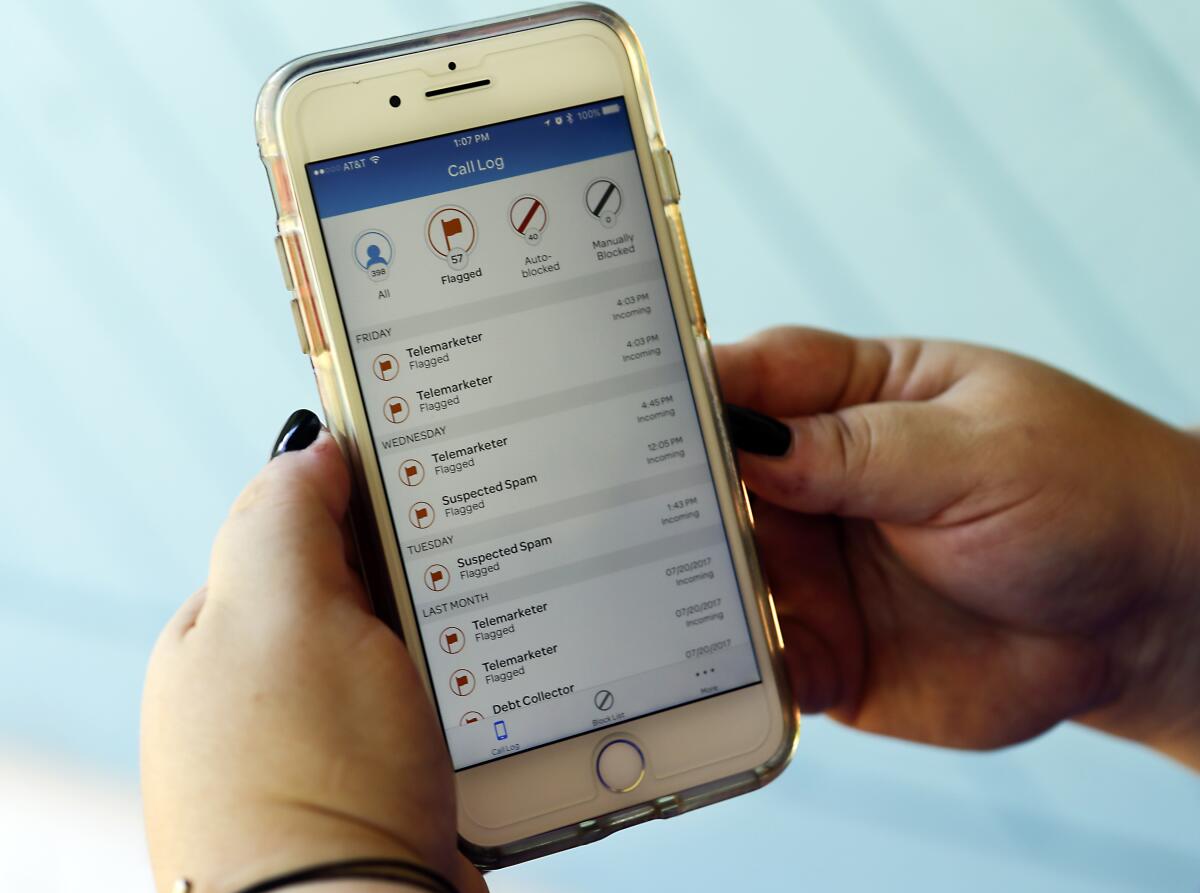San Diego telemarketer fined nearly $10 million for fraudulent Caller ID numbers

- Share via
The Federal Communications Commission has fined a San Diego man and his telemarketing company nearly $10 million for falsifying Caller ID numbers on political robocalls that contained false accusations about a candidate in a 2018 California Assembly race.
According to the FCC, Ken Moser and his company, Marketing Support Systems, displayed the Caller ID number of a rival telemarketing company on 47,610 prerecorded calls in violation of the Truth in Caller ID Act.
The act prohibits manipulating Caller ID information with the intent to defraud, cause harm or wrongfully obtain anything of value.
The competitor, HomeyTel Inc., received many angry complaints from consumers and a cease-and-desist letter from the candidate, according to the FCC.
The prerecorded calls, made May 30-31, 2018, mentioned accusations of sexual harassment leveled against Phil Graham, a Republican who was battling several others in the June 5, 2018, primary for the 76th Assembly District seat.
The accusations had already been debunked by the San Diego County Sheriff’s Department, which released results of an investigation on May 29, 2018. The person who made the accusations eventually pleaded guilty to filing a false report.
Moser disputes the $9,997,750 fine, calling the action politically motivated.
Moser contends that Marketing Support System used the false Caller ID to protect the identity of its client, who feared reprisals. He knew the number once belonged to HomeyTel, but said he believed the company was no longer using it because it was inactive.
HomeyTel’s last filing with the California secretary of state’s office was in 2015, and its corporate status was listed as “suspended.” Its owner, Conrad Braun, moved to Mexico in 2014, according to court documents.
Since the fine is based on Moser’s intent to harm a competitor, “the obvious non-existence of this competitor seems to be vital evidence missed by the FCC,” Moser said in a filing with the agency.
In a written statement, FCC Chairman Ajit Pai said Moser’s assertion that he didn’t intend to harm HomeyTel isn’t credible. The two companies had been involved in a lawsuit in 2013.
“Moser intentionally chose to use a phone number he knew belonged to a business rival with whom he had a bitter, litigious history,” Pai wrote. “One would have to be rather naïve to think that this was not done with the intent to cause harm.”
Freeman writes for the San Diego Union-Tribune.
More to Read
Sign up for Essential California
The most important California stories and recommendations in your inbox every morning.
You may occasionally receive promotional content from the Los Angeles Times.














